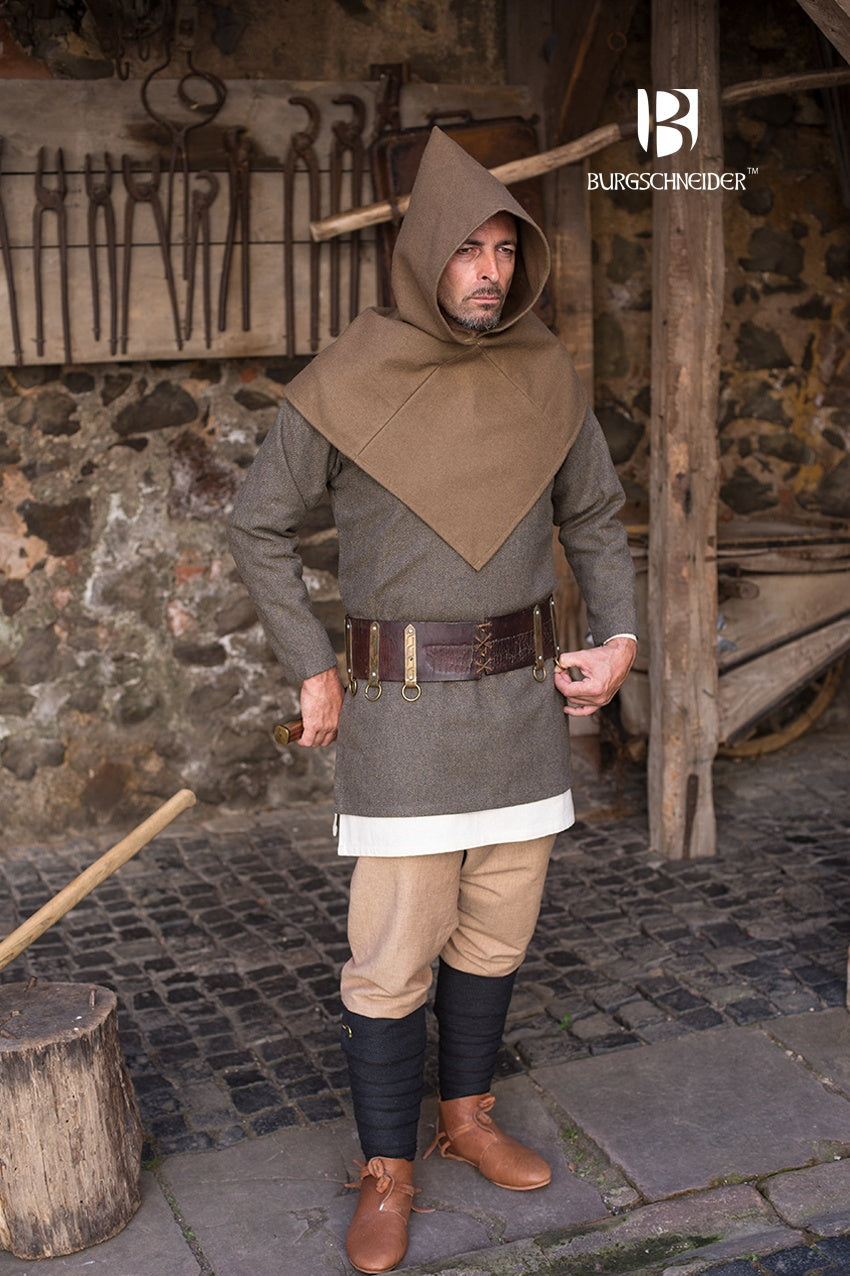1
/
of
2
Zeughaus
Skjoldehamn Cowl Bjorn Autumn Green
Skjoldehamn Cowl Bjorn Autumn Green
Regular price
$34.99 USD
Regular price
$0.00 USD
Sale price
$34.99 USD
Unit price
/
per
Tax included.
Shipping calculated at checkout.
No reviews
Couldn't load pickup availability
The Skjoldehamn Cowl was discovered in a pagan grave from the first half of the 11th century. This is one of the first examples of the headgear \"Gugel\" itself.
The hood has a basic square shape, characteristically the wide brim ends with a corner on the chest.
The grave find from Skjoldehamn raised many questions since its recovery in 1936 and still occupies today. According to current research, the dating of the pagan grave in the marshland is the first half of the 11th century. The hood of the gugel from Skjoldehamn has a simple square basic shape and a very wide brim, which does not fall round, but with a corner on the chest. This gugel is also a very early example of the type of headgear that became a ubiquitous garment in Europe during the Middle Ages.
In the course of research, attempts were made to assign the garment to a gender and cultural group. For this purpose, not only the DNA of the buried person was examined more closely, but also the additional finds. The enclosed trousers determined the theory of the researchers that the person must have been male. DNA examination in 1999 showed no Y chromosome present in the bones, which supported the theory that it had to be a woman instead. However, this methodology is considered outdated.
The question of culture points to Norway. This is assumed by ornamentation and morphological features, which suggest that the buried person was a Sami tribal member. Further research is needed, as some key evidence for these hypotheses is still lacking. More modern DNA analysis and research into the history of the fashions of the various Sami groups will shed light on this.
The hood has a basic square shape, characteristically the wide brim ends with a corner on the chest.
The grave find from Skjoldehamn raised many questions since its recovery in 1936 and still occupies today. According to current research, the dating of the pagan grave in the marshland is the first half of the 11th century. The hood of the gugel from Skjoldehamn has a simple square basic shape and a very wide brim, which does not fall round, but with a corner on the chest. This gugel is also a very early example of the type of headgear that became a ubiquitous garment in Europe during the Middle Ages.
In the course of research, attempts were made to assign the garment to a gender and cultural group. For this purpose, not only the DNA of the buried person was examined more closely, but also the additional finds. The enclosed trousers determined the theory of the researchers that the person must have been male. DNA examination in 1999 showed no Y chromosome present in the bones, which supported the theory that it had to be a woman instead. However, this methodology is considered outdated.
The question of culture points to Norway. This is assumed by ornamentation and morphological features, which suggest that the buried person was a Sami tribal member. Further research is needed, as some key evidence for these hypotheses is still lacking. More modern DNA analysis and research into the history of the fashions of the various Sami groups will shed light on this.
Material
Material
Blazer (74% wool, 15% polyester, 7% polyamids, 4% misc. natural fibres)
Color
Color
Autumn Green
Share


Size guide



